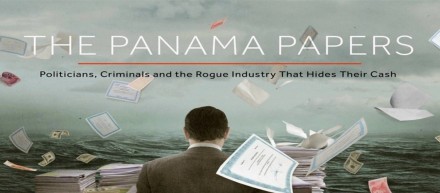 By Nino Bakradze
By Nino Bakradze
www.ifact.ge
In 2011, a company formed by the brother-in law of former Georgia Minister of Defense David Kezarashvili to operate the country’s national lottery system gave 70 percent of that company’s shares to the Ministry of Economics free of charge. Leaked documents found in the Panama Papers offer a possible explanation for this gift.
Due to a wild overestimation of possible revenues from the lottery, the Georgian Lottery Company was already 30 million lari (about $US12 million) behind in its promised payments to the government for the rights to operate the lottery. The holding company for Georgian Lottery Company was registered in the British Virgin Islands (BVI) in 2009 and the sole shareholder was Dimitri Chikovani, whose brother-in-law was a powerful minister under former President Mikheil Saakashvili and is currently a fugitive from justice in England.
The Panama Papers are a collection of documents from the Panamanian law firm Mossack-Fonseca, obtained by the German newspaper Suddeutsche Zietung and shared by the International Consortium of Investigative Journalists with reporters from over 80 countries.

Dimitri Chikovani
According to the Panama Papers documents, Lexor Capital was registered in the name of Chikovani, who was 23 years old at the time. On August 5, 2011, inter-office communication within Mossack-Fonseca, the law firm that registered Lexor Capital, indicated that it was against Mossack-Fonseca policy to work with any BVI-registered company engaged in the gambling industry because BVI has strict anti-gambling laws.
Three days later, a Mossack-Fonseca staffer wrote that Lexor Capital had stated that it activities were limited to “ticket printing, computer systems and accounting” and that Lexor Capital claimed it was not involved in collecting lottery money or distributing it to winners, even though it was the 100 percent shareholder of the lottery company.
The next day (August 9) Lexor Capitol was allowed to hand over 70 percent of the shares to the Ministry of Economy — along with the fast-growing debt. The document was signed by Chikovani and Zurab Aznaurashvili, who at that time worked in the Enterprise Management Agency within the Ministry of Economy.
The Ministry of Economics was already trying to manage hundreds of failing and failed Georgia businesses. Aznaurashvili said he was told by then-Deputy Minister of Economics David Giorgadze to sign the document.
Chikovani’s brother-in-law, Kezerashvili, served in Saakashvili’s cabinet until late 2008, when the left the Defense Ministry to go into business fulltime. After Saakashvili was defeated in a 2012 election, Kezerashvili quickly moved to Europe. The Georgian government accuses him of stealing tens of millions of dollars in cash and properties, and has tried unsuccessfully to extradite him, first from France and more recently from England, where he now lives. Kezerashvili’s lawyers have successfully argued that the charges against him are politically motivated.
Current lottery company director Levan Chikvaidze and Gigla Mikautadze, head of the Taxpayers Union, an independent organization that tries to protect taxpayers’ rights, agree that Chikovani simply wanted to dump an unprofitable company.
Chikovani, former Lexor Capital director Leli Chelidze and former board member Alexander Gogokhia have either been unavailable or refused to comment. A phone number for former Deputy Minister of Finance Giorgadze has been disconnected.
One month after it was founded in 2009, the Georgian Lottery Company won by tender the exclusive rights for 10 years to operate a lottery on behalf of the Ministry of Finance. The company promised to pay the ministry 913 million lari (about $US 406 million) for those rights. One year later, the contract was changed to 15 years and the total rights fee to 1.5 billion lari (about $US 667 million). According to Chikvaidze, the company has paid only a total of 19 million lari (about $US 8.4 million) in rights fees. The Ministry of Finance would not confirm that figure, saying any lottery company information was confidential business information, even though 70 percent of the company belongs to the Georgian people through its government.
Chikvaidze said the lottery takes in more money than it pays out, although annual revenues have dropped more than 50 percent since 2010 (see chart above). On paper, the annual losses are increasing rapidly because the lottery is falling so far behind on the payment schedule for the rights fee.
 Chikvaidze says the original owners had totally unrealistic projections for the lottery revenues. Indeed, the current yearly rights fee alone works out to about $US11 for every man, woman and child in Georgia. “The license conditions agreed to in 2009 showed a lack of experience in calculating the company’s payments, and are not relevant to the current situation,” Chikvaidze said.
Chikvaidze says the original owners had totally unrealistic projections for the lottery revenues. Indeed, the current yearly rights fee alone works out to about $US11 for every man, woman and child in Georgia. “The license conditions agreed to in 2009 showed a lack of experience in calculating the company’s payments, and are not relevant to the current situation,” Chikvaidze said.
In January 2016, the Ministry of Finance announced that it was willing to sell its 70 percent share of the lottery company for only 1,000 lari (about $US 440). According to its own website, the Ministry calculated the lottery company’s debt at 216.3 million lari (about $US 96.1 million). But when civic groups complained about the low sales price, the Ministry canceled the sale. According to Nick Kamushadze from the National Agency of State Property, there is no current strategy for selling the shares. The Ministry of Finance refused to comment.
As for the other 30 percent, Panama Papers documents show that in 2013 Chikovani transferred Lexor Capital to Teimuraz Aronia, a Georgian businessman who serves on the board of mobile phone operator Beeline LTD and online provider Caucasus Online. The Panama Papers documents do not show whether Aronia paid anything for the lottery company shares.
Lottery company director Chikvaidze says he has never spoken to Aronia, and that four letters to Lexor Capital have gone unanswered. The distance between the lottery office and the Lexor office is about one kilometer. Chikvaidze says that since the government owns 70 percent of the shares, he makes decisions unilaterally.
Aronia did not reply to e-mail questions.
Chikvaidze says the lottery company has held talks with the Ministry of Finance about reducing the huge license fee debt, but he says the Ministry refuses to change the contract now. Although the Ministry did change the contract once in 2010, it refuses to comment on whether it would consider changing the contract again.
(This is the first story distributed on ifact.ge, an investigative news website registered in Georgia. It replaces the investigative news website OCCRPCaucasus.)
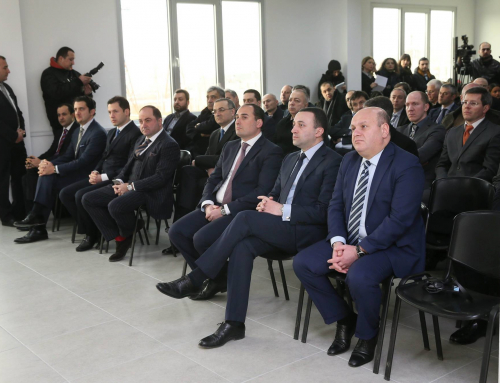
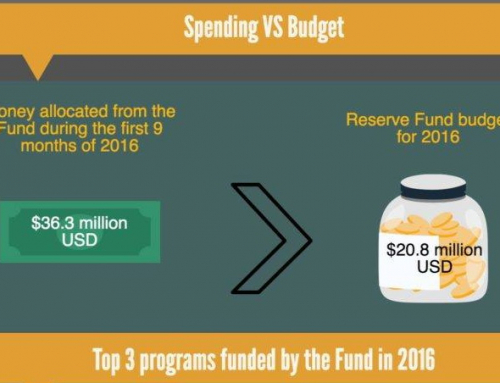

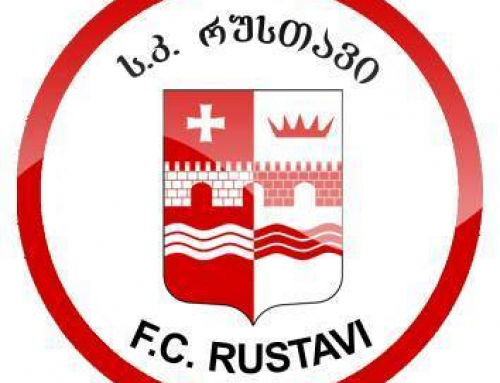
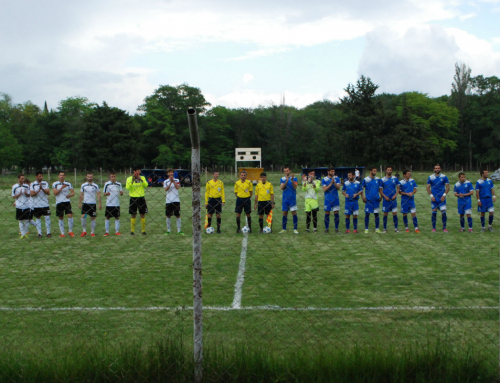
Leave A Comment
You must be logged in to post a comment.